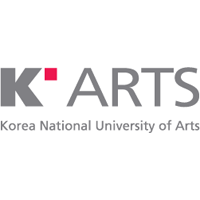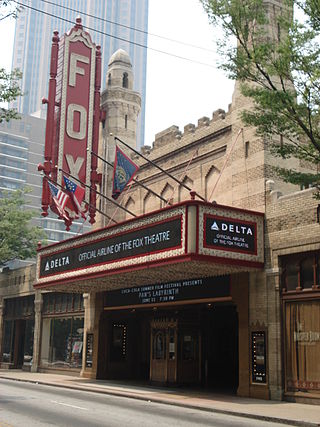In common with other European countries, the most frequent and most popular form of theatre in Poland is dramatic theatre, based on the existence of stable artistic companies. It is above all a theatre of directors, who decide on the form of its productions and the appearance of individual scenes. There is no strict division in Poland between theatre and film directors and actors, therefore many stage artists are known to theatre goers from films of Andrzej Wajda, for example: Wojciech Pszoniak, Daniel Olbrychski, Krystyna Janda, Jerzy Radziwiłowicz, and from films of Krzysztof Kieślowski, actors such as Jerzy Stuhr, Janusz Gajos and others.

Julie Taymor is an American director and writer of theater, opera, and film. Her stage adaptation of The Lion King debuted in 1997 and received eleven Tony Award nominations, with Taymor receiving Tony Awards for her direction and costume design. Her 2002 film Frida, about Mexican artist Frida Kahlo, was nominated for five Academy Awards, including a Best Original Song nomination for Taymor's composition "Burn It Blue". She also directed the 2007 jukebox musical film Across the Universe, based on the music of the Beatles.

Richard Foreman is an American avant-garde playwright and the founder of the Ontological-Hysteric Theater.

Mark William Morris is an American dancer, choreographer and director whose work is acclaimed for its craftsmanship, ingenuity, humor, and at times eclectic musical accompaniments. Morris is popular among dance aficionados, the music world, as well as mainstream audiences.

The National Palace of Culture, located in Sofia, the capital of Bulgaria, is one of the largest multifunctional conference and cultural centers in the world. It was opened in 1981 in celebration of Bulgaria's 1300th anniversary.
The Dora Mavor Moore Awards are awards presented annually by the Toronto Alliance for the Performing Arts (TAPA), honouring theatre, dance and opera productions in Toronto. Named after Dora Mavor Moore, who helped establish Canadian professional theatre, the awards program was established on December 13, 1978, with the first awards held in 1980. Each winner receives a bronze statue made from the original by John Romano.

Sangeet Natak Akademi is the national level academy for performing arts set up by the Government of India.

The National Centre for the Performing Arts (NCPA) is a multi-venue, multi-purpose cultural centre in Mumbai, India, which aims to promote and preserve India's heritage of music, dance, theatre, film, literature and photography. It also presents new and innovative work in the performing arts field.
Martha Clarke is an American theater director and choreographer noted for her multidisciplinary approach to theatre, dance, and opera productions. Her best-known original work is The Garden of Earthly Delights, an exploration in theatre, dance, music and flying of the famous painting of the same name by Hieronymus Bosch. The production was honored with a Drama Desk Award for Unique Theatrical Experience, an Obie Award for Richard Peaslee's original score, and a Los Angeles Drama Critics Circle Award for choreography.

Harlem School of the Arts (HSA) is an art school located in the Harlem section of Manhattan, New York City, United States. Opening its doors in 1964, HSA serves ages 2 through 18.
The Pascall Prize for Arts Criticism, formerly known as the Pascall Prize and then the Walkley-Pascall Award or Walkley-Pascall Award for Arts Criticism, is one of two annual Walkley Arts Journalism prizes awarded by the Walkley Foundation. The prize was established in 1988 in memory of Geraldine Pascall, an Australian journalist who died of a stroke at the age of 38.
Each year since 1988 The Critics' Circle has presented an award for Distinguished Service to the Arts, voted for by all members of the Circle, embracing Dance, Drama, Film, Music, Visual Arts and Architecture. This performing arts Award takes the form of an engraved crystal rose bowl, presented at a celebratory luncheon.

Aberystwyth Arts Centre is an arts centre in Wales, located on Aberystwyth University's Penglais campus. One of the largest in Wales, it comprises a theatre, concert hall, studio and cinema, as well as four gallery spaces and cafés, bars, and shops.
Theatre Puget Sound (TPS) is a not-for-profit organization devoted to supporting the performing arts in the Puget Sound area of Washington. It was founded in 1997.

Korea National University of Arts is a national university in Seoul, South Korea. Korea National University of Arts was established in 1993 by the Ministry of Culture, Sports and Tourism of Korea as the only national university of arts with an aim to serve as a leading institution which cultivates artists. It has 26 departments in six schools: Schools of Music, Drama, Film, TV & Multimedia, Dance, Visual Arts, and Korean Traditional Arts.
The National Dance Awards are presented annually in the United Kingdom by The Critics' Circle, and are awarded to recognise excellence in professional dance. They are widely regarded as the most prestigious award presented for dance in the UK, and are considered to be the equivalent of the Laurence Olivier Awards, which are presented for general theatre.

The Arts Foundation of New Zealand Te Tumu Toi is a New Zealand arts organisation that supports artistic excellence and facilitates private philanthropy through raising funds for the arts and allocating it to New Zealand artists.

The arts in Atlanta are well-represented, with a prominent presence in music, fine art, and theater.

The Toronto Heliconian Club is a non-profit association of women involved in the arts and letters based in Toronto, Ontario. It operates out of Heliconian Hall, a historic building located in the Yorkville area of central Toronto. Founded in 1909, the Club still focuses on its original commitment to women supporting and working in the arts.










